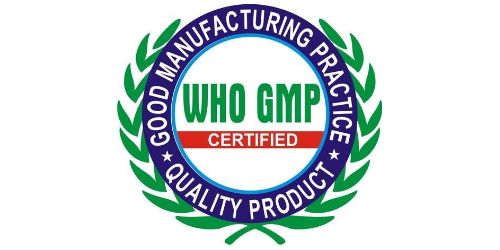What is the Scope of Pharmaceutical Marketing in India?
- Suncare Formulations Pvt Ltd
- Nov 25, 2024
- 4 min read
India's pharmaceutical industry stands as a global powerhouse, renowned for its expansive market, innovative strides, and substantial impact on healthcare. As the third-largest pharmaceutical market by volume worldwide, the scope of pharmaceutical marketing in India is both vast and dynamic. This article aims to unravel the myriad opportunities within this field, highlighting key drivers, emerging trends, and effective strategies. Whether you are a multinational corporation, a new-age startup, or a government entity, understanding the landscape of pharmaceutical marketing in India can be a game-changer for your business.

Key Drivers of Pharmaceutical Marketing in India :-
Expanding Healthcare Access: With initiatives like Ayushman Bharat aiming to provide comprehensive healthcare to millions, the demand for pharmaceutical products is escalating. This increased access to healthcare services opens new avenues for pharmaceutical marketing, ensuring that essential medications reach a broader population.
Rise of Chronic Diseases: The prevalence of lifestyle diseases such as diabetes, hypertension, and cardiovascular conditions is on the rise. This surge necessitates continuous marketing efforts to promote effective medications and improve patient outcomes.
Growth of the Generic Drug Market: India's dominance in generic drug manufacturing offers a competitive edge. Pharmaceutical marketing plays a crucial role in promoting these cost-effective alternatives both domestically and internationally, ensuring their widespread adoption.
Technological Advancements: The integration of digital health technologies and telemedicine is transforming how pharmaceutical companies engage with healthcare professionals and patients. These advancements provide new platforms for marketing and outreach, making it easier to disseminate information about new drugs and treatments.
Current Trends in Pharmaceutical Marketing:-
1) Digital Transformation:
The digital revolution has ushered in a new era of pharmaceutical marketing. Companies are increasingly adopting digital platforms to reach wider audiences through:
Social Media Campaigns: Engaging with audiences on platforms like Facebook, Instagram, and LinkedIn.
Content Marketing: Creating educational blogs, videos, and webinars.
SEO: Optimizing content to improve search engine rankings.
2) Personalized Marketing:
Personalization is key to enhancing patient engagement. By leveraging data analytics, companies can tailor their marketing messages to meet individual preferences and needs, resulting in more effective campaigns.
3) Mobile Marketing:
With the ubiquity of smartphones, mobile marketing has become indispensable. Pharmaceutical companies are developing mobile apps and utilizing SMS marketing to provide timely information, dosage reminders, and health tips.
4) Regulatory Compliance:
Ensuring adherence to the guidelines set by the Central Drugs Standard Control Organization (CDSCO) and other regulatory bodies is essential. Compliance not only builds trust but also prevents legal issues, making it a cornerstone of pharmaceutical marketing.
5) Strategic Collaborations:
Partnerships with healthcare professionals, hospitals, and research institutions can amplify the reach and credibility of marketing efforts. Collaborations facilitate the dissemination of educational content and the promotion of new treatments.
Effective Strategies for Pharmaceutical Marketing:-
Targeted Advertising:
Identifying and segmenting the target audience allows for the delivery of tailored advertising messages. Utilizing demographic and psychographic data ensures campaigns resonate with specific groups, enhancing their effectiveness.
Educational Initiatives:
Educating healthcare professionals and patients about new drugs and treatments is crucial. Organizing workshops, seminars, and continuing medical education (CME) programs can build trust and credibility.
Influencer Marketing:
Engaging with key opinion leaders (KOLs) and influencers in the healthcare sector can significantly impact the adoption of new medications and treatments. Their endorsements lend credibility and reach to marketing campaigns.
Multi-Channel Marketing:
A multi-channel approach ensures that marketing efforts reach the audience through various touchpoints. Combining traditional methods with digital strategies maximizes reach and engagement.
Data-Driven Decision Making:
Leveraging data analytics to measure the effectiveness of marketing campaigns is essential. Insights from data can help refine strategies, improve ROI, and track key performance indicators (KPIs) such as prescription rates and sales growth.
The Future of Pharmaceutical Marketing in India:-
Artificial Intelligence (AI) and Machine Learning (ML):
AI and ML technologies are set to revolutionize pharmaceutical marketing. These technologies can analyze vast datasets to identify patterns, predict trends, and enable data-driven decision-making. AI-driven chatbots and virtual assistants can also enhance customer engagement by providing instant support and personalized recommendations.
Telemedicine and Remote Healthcare:
The COVID-19 pandemic accelerated the adoption of telemedicine and remote healthcare services. Pharmaceutical companies can leverage these platforms to market their products and provide virtual consultations, ensuring patients have access to essential medications even in remote areas.
Patient-Centric Marketing:
A shift towards patient-centric care is driving pharmaceutical companies to focus on patient needs and experiences. By involving patients in the development and marketing of new drugs, companies can create more effective and targeted treatments.
Blockchain Technology:
Blockchain technology offers transparency and security in pharmaceutical marketing. It can be used to track the supply chain of drugs, ensuring authenticity and preventing counterfeit products from entering the market. Blockchain also facilitates secure data sharing among stakeholders.
Sustainable and Ethical Marketing:
As consumers become more environmentally conscious, pharmaceutical companies are adopting sustainable and ethical marketing practices. This includes promoting eco-friendly products, reducing the environmental impact of packaging, and ensuring fair trade practices.
If you are looking for a pharmaceutical manufacturer, consider speaking with us, we have over 30 years of experience, and our product range expands into 60 therapies and over 400 formulations in various forms- tablets, liquids, capsules, externals etc.




Comments